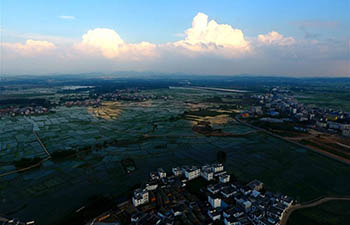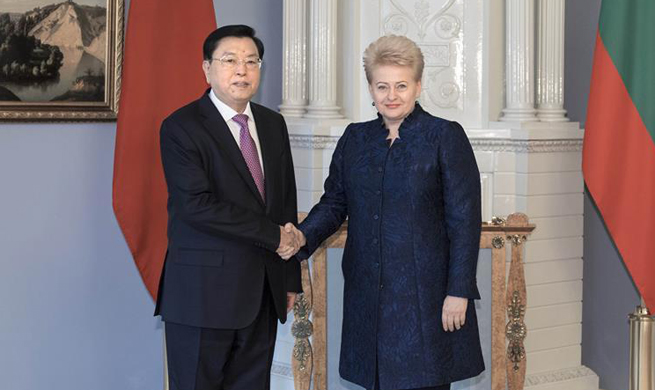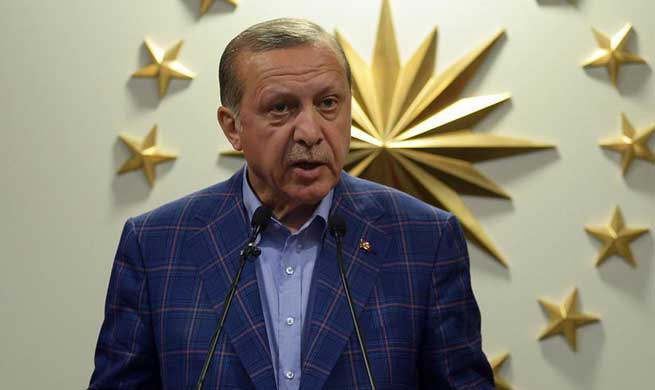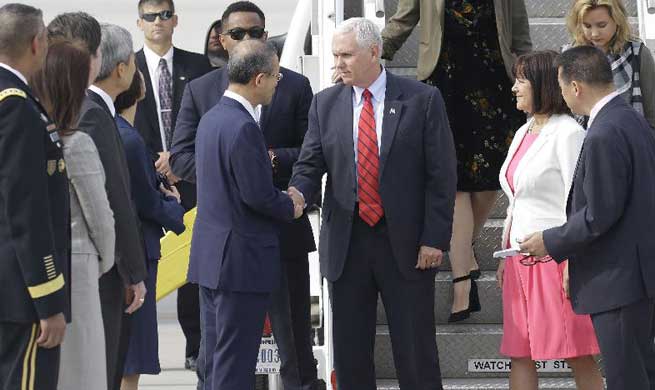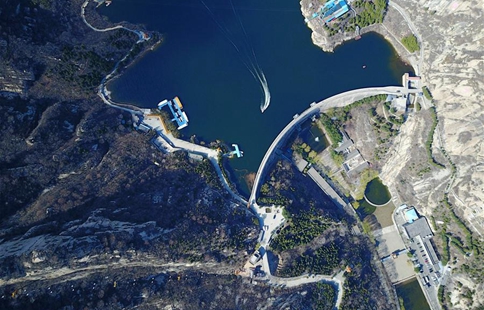DAMASCUS, April 17 (Xinhua) -- The international community has denounced a deadly car bombing that killed 126 people of a convoy of Shiite evacuees in northern Syria.
The Saturday blast, carried out by a suicide bomber driving a booby-trapped potato truck, rocked the rebel-held Rashideen area in the countryside of Aleppo province, where buses carrying 5,000 pro-government Shiites were waiting for the reactivation of a deal designed to secure their transportation to the government-controlled area in Aleppo.
The dead included 109 evacuees from the towns of Foah and Kefraya in the northwestern province of Idlib, according to the Syrian Observatory for Human Rights. The rest were aid workers and rebels guarding the convoy.
There has been no claim of responsibility for the attack.
On Sunday, residents and local officials in government-controlled Aleppo held a massive rally protesting the bombing, Syria's state news agency reported.
The participants condemned "this terrorist and cowardly deed," according to the agency.
The United Nations (UN) Saturday condemned the deadly attack and called on the parties to protect the evacuees.
"We express our condolences to the families of the victims of the incident and wish those injured a speedy recovery," said Stephane Dujarric, spokesperson for UN Secretary-General Antonio Guterres, in a statement.
"We call on the parties to ensure the safety and security of those waiting to be evacuated," he said, adding that "those responsible for today's attack must be brought to justice."
The United States on Sunday strongly condemned the "barbaric" attacks.
"We deplore any act that sustains and empowers extremists on all sides including today's attacks, as well as forced migration, increased displacement, and all forms of violence directed against civilians in Syria," Mark Toner, spokesperson for the U.S. State Department, said in a statement.
The Iraqi Ministry of Foreign Affairs also expressed strong condemnation of "the criminal terrorist act."
"Iraq also calls on the international community to make this horrible crime, which has claimed the lives of dozens of children, women and the elderly, enough reason to show seriousness in solving the Syrian crisis peacefully and away from the pursuit of some countries to achieve their political interests," the ministry said in a statement.
The recently reached deal between the rebels and the Syrian government under the supervision of Iran, Turkey and Qatar was designed to secure the evacuation of people from the pro-government Shiite towns of Kafraya and Foah in Idlib province toward government areas in Aleppo province.
In return, the government will allow rebels and their families to leave the rebel-held towns of Madaya and Zabadani in northern Damascus to reach Idlib province.
The evacuation started on Friday, with 5,000 Shiites leaving Kafaraya and Foah, and 2,300 rebels and their families leaving the town of Madaya.
The Shiites have reached the rebel-held town of Rashideen, while the rebels have reached the government-controlled Ramouseh crossing in Aleppo.
Both convoys were set to leave for their respective destinations, before the rebels in Rashideen held up the convoy of the Shiites, adding new demands to the original deal.
But after the deadly bombing, the rebels apparently succumbed to the pressure of their regional backers and allowed the buses to proceed to the government-controlled Aleppo city, thus marking the implementation of the first part of the deal.
Still, around 3,000 people are in the Shiite towns waiting their turn to be evacuated. Once they are out, both towns will be completely emptied of their populations, and the rebels will take over, after besieging the towns for years.
It's the same with Madaya and Zabadani, as the army entered Madaya on Friday following the evacuation of the first batch of rebels and their families.
The next step of the evacuation will be in Zadabani, where 500 rebel commanders and civilians are set to leave next.
However, it's not clear when the second batch will leave the four towns, particularly after the explosion.
The United Nations said in February that around 4.7 million people live in hard-to-reach locations across the war-torn country, including more than 640,000 in besieged locations.




